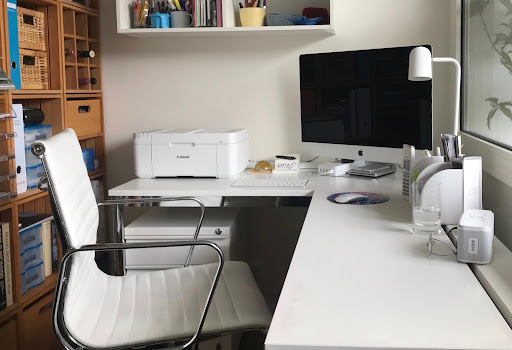How To Choose The Right Insurance Plan: 6 Useful Tips
It can be difficult to choose the right insurance plan. There are so many options available, and it can be hard to know which one is right for you. In this blog post, we will provide 6 useful tips that will help make the process a little bit easier. Keep reading to learn more!
1. Know what you need:
The first step is to figure out exactly what type of coverage you need. This will depend on a variety of factors, such as your age, health, lifestyle, and more. Once you know what you need, it will be much easier to find a plan that meets those needs. If you’re not sure where to start, consider talking to a professional who can help assess your individual needs. For example, if you’re a parent, you may want to look for a plan that offers great coverage for your children. If you have any preexisting conditions, be sure to find a plan that covers them. This is important because otherwise, you could be left with large bills that you can’t afford to pay. Finally, think about what type of deductible you’re comfortable with. A higher deductible will mean lower premiums, but it also means that you’ll have to pay more out-of-pocket if something happens. Choose a deductible that makes sense for your budget and needs.
2. Consider your budget:
The next step is to think about how much you can afford to spend on premiums. This will vary depending on your income and other financial factors. Once you have a general idea of what you can afford, you can start looking at plans that fall within your budget. It’s important to remember that the lowest premium doesn’t always mean the best value. Be sure to look at the whole picture when considering insurance plans. In addition to premiums, The pros at TexasInsurance.org advise that you also consider things like deductibles, copayments, and coinsurance. All of these factors can impact your overall costs. That’s why everyone should make sure they’re taking these things into account when comparing different plans. Finally, don’t forget about other potential costs associated with healthcare, such as prescription drugs.
-
Think about your future needs
When you’re considering your budget, it’s also important to think about your future needs. For example, if you’re planning on starting a family soon, you’ll want to make sure you have a plan that will cover the costs of prenatal care and delivery. On the other hand, if you’re near retirement age, you may want to look for a plan with lower premiums but higher out-of-pocket costs. This is because your health care needs are likely to be less expensive once you reach retirement age. By taking the time to consider your budget and future needs, you can be sure that you’re choosing a plan that’s right for both now and the future.
3. Compare plans:
Once you know what you need and what you can afford, it’s time to start comparing plans. There area unit many other ways to try to do this. The first is to contact each company directly and ask for quotes. This can be time-consuming, but it’s a great way to get specific information about each plan. An alternative choice is to use an internet comparison tool. This can be a quick and easy way to see how different plans stack up against each other. Simply enter your information and the type of coverage you’re looking for, and you’ll be able to see a list of options that meet your criteria. From there, you can compare premiums, deductibles, copayments, and more to find the best value.
4. Check the fine print:
Once you’ve found a few plans that you’re interested in, it’s important to read the fine print. This is where you’ll find all of the details about what each plan covers and doesn’t cover. For example, some plans may have lifetime limits on certain benefits, while others may not cover pre-existing conditions. It’s important to understand exactly what your plan covers before you enroll. Otherwise, you could be left with unexpected costs down the road. If you have any questions about the language in your policy, don’t hesitate to contact the company and ask for clarification. You can also ask your doctor or another healthcare professional to review your policy to make sure you understand everything.
5. Consider your provider network:
When you’re looking at insurance plans, it’s also important to consider the provider network. This is the group of doctors, hospitals, and other healthcare providers that your plan has contracted with. In many cases, you’ll pay more for out-of-network care. That’s why it’s important to make sure that your favorite doctor or hospital is in-network before you enroll in a plan. You can usually find this information on the insurer’s website. If you can’t find it there, give them a call and ask about specific providers. It’s also a good idea to ask your doctor if they accept the insurance plan you’re considering. By taking the time to research provider networks, you can be sure that you’ll have access to the care you need.
6. Get help if you need it:
Choosing an insurance plan can be confusing, but there are resources available to help. If you have questions about the process, don’t hesitate to reach out to a professional. Your state’s insurance department is a great place to start. They can provide you with general information about the plans available in your area. You can also contact a licensed insurance agent. These professionals can help you compare plans and find the best option for your needs. They can also answer any questions you have about coverage, benefits, and more. Best of all, they can do all of this at no cost to you.
Make your decision!
Once you’ve considered all of these factors, it’s time to make your decision. Keep in mind that you can always change your plan if it’s not working out for you. However, by taking the time to choose carefully, you can be sure that you’re getting the best possible coverage for your needs.

When it comes to choosing an insurance plan, there are a lot of things to take into account. By following these six tips, you’ll be able to find a plan that’s right for you and your family. Remember to consider your needs and budget, read the fine print, and compare plans before making a decision. And if you have any questions, don’t hesitate to reach out for help. Hopefully, these tips will make the process a little easier for you.















